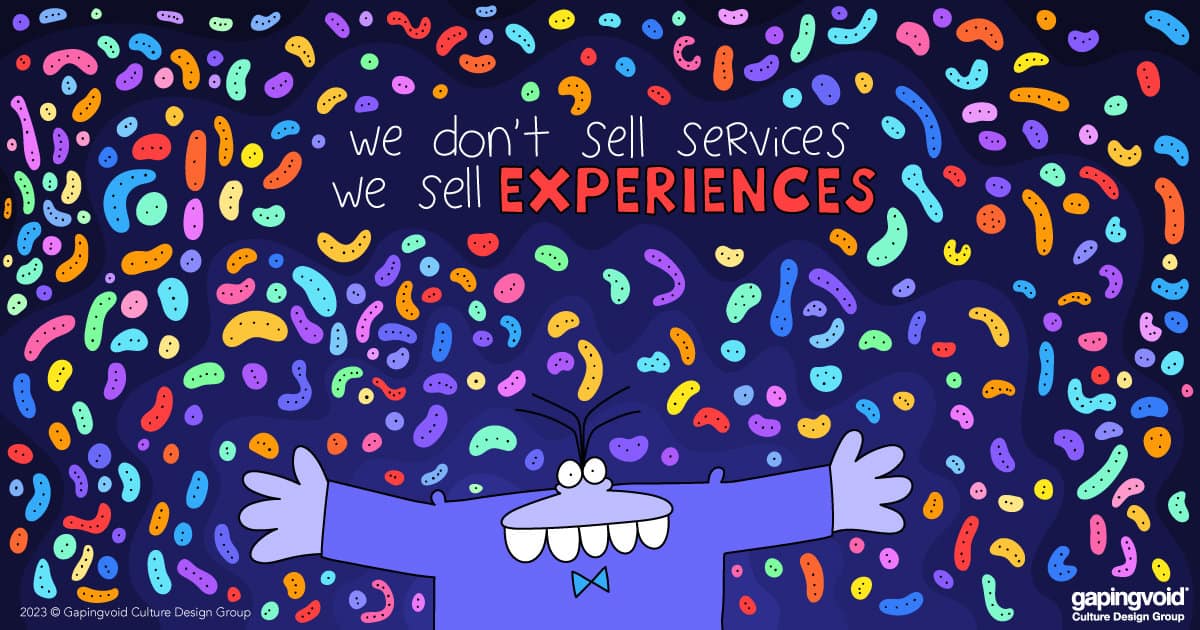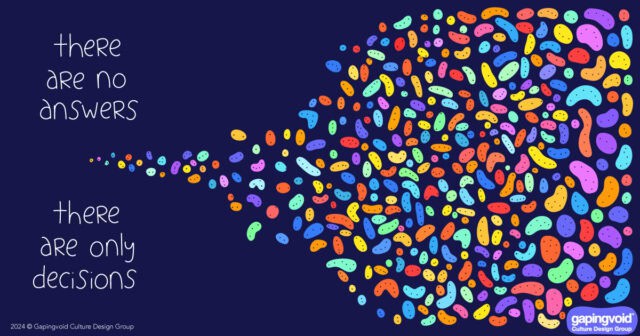
Netflix has been in the news lately with its new plans to open two Netflix retail stores, where people can “interact with their favorite shows” in real time. This is essentially what Disney has been doing with its IP at Disney World for decades only on a much smaller scale.
Apparently Netflix has already done over 40 pop-ups of its streaming shows so far, giving fans “experiences” in addition to hours of binge-worthy content.
Not only is this an additional revenue stream, it gives them an opportunity to create more merch, attract PR, help grow their subscriber base, and all that other brand-building-y goodness.
All well and good. We might just call this stuff “21st Century Marketing.” As we increasingly see, it’s no longer enough to just have a “product,” people want to buy the “experiences” that those products unlock.
But it actually goes WAY beyond that.
A century ago, GK Chesterton famously wrote, “When a man stops believing in God, he doesn’t believe in nothing, he believes in anything.”
Turns out, he was right. A recent three-year international research project, from two academics at the University of Oxford, found that humans have natural tendencies to believe in gods and the afterlife.
This is not surprising. As any Victor Frankl fan will tell you, we are meaning-seeking creatures. We look and find meaning anywhere we can. Inject enough meaning into an idea, and eventually the idea gets deified, or at least, we start behaving like it is.
This is why a real jazz nerd can’t just have their favorite tracks on iTunes, nope, it HAS to be vinyl. Or why that toy lightsaber is FAR MORE than just a flashlight with a plastic stick on the end to the hardcore Star Wars fan. Or why people brew butterbeer or trade friendship bracelets with strangers. Or why people will spend months painting a landscape… or centuries building a cathedral. They have different time spans in their creation, but it’s the same idea. We’ve been hardwired to project our internal, spiritual selves onto external objects. That’s not the only way we find meaning, but it’s a primary way.
The lesson here is not really about what Netflix is doing or about the latest marketing trends.
The lesson here is that, like many things, when marketing works well, it’s because it’s figured out how to reach parts of our deepest selves on some level. Our emotions. Our souls.
So the next time you have a big problem to solve, don’t be afraid or too shy, to “go deep.” On one level, sure, “It’s just marketing”, but on another, no it isn’t.



